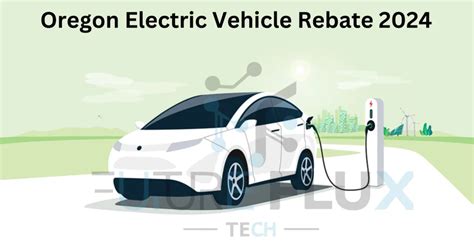Drive Green: How Oregon’s Electric Car Rebate is Changing the EV Landscape
As the world increasingly turns its attention to sustainable practices, Oregon has taken significant strides in promoting electric vehicles (EVs) through its innovative electric car rebate program. This initiative is not just a financial incentive but also a catalyst for cleaner air and a more sustainable transportation ecosystem. Let’s delve into how these rebates work, their impact on consumers, and their broader implications for the EV landscape in Oregon.
The Basics of Oregon’s Electric Car Rebate
Oregon’s electric car rebate program is designed to make EVs more accessible to residents. Through this initiative, individuals can receive financial rebates when they purchase or lease electric vehicles. These rebates can range from $2,500 for new battery electric vehicles (BEVs) to $750 for used electric cars. By alleviating some of the financial burdens associated with purchasing an EV, the program encourages more residents to consider an electric option over traditional gasoline-powered vehicles.
Your Contribution to the Environment
Switching to an EV significantly reduces greenhouse gas emissions. According to recent studies, electric cars generate fewer emissions over their lifecycle compared to conventional vehicles. This is particularly true in Oregon, where much of the electricity comes from renewable sources such as hydroelectric power. Thus, every EV purchased not only contributes to cleaner air but also helps in the fight against climate change.
Economic Benefits of the Program
The electric car rebate program has created economic opportunities in the state. As more residents opt for electric vehicles, the demand for EV infrastructure, such as charging stations and maintenance services, is increasing. Businesses that cater to these needs are thriving. Local manufacturers and dealerships also benefit as they expand their inventory to include a variety of EV models, which generates additional sales tax for the state.
Consumer Awareness and Adoption
One of the challenges surrounding electric vehicle adoption has been consumer awareness. Oregon’s rebate program includes educational components that help inform residents about the benefits of electric vehicles. Workshops, community events, and online resources are part of the outreach strategy, ensuring that residents are well-informed about their options. This increased awareness is crucial for ensuring that potential buyers understand not just the incentives, but also the long-term savings associated with owning an EV.
Impact on Range Anxiety
Range anxiety, the fear of running out of battery power before reaching a charging station, has been a barrier to EV adoption in the past. However, as more people invest in electric vehicles, the development of charging infrastructure is rapidly evolving. Many Oregon cities and communities are installing public charging stations, making it easier than ever for EV owners to charge their cars. With the support of the rebate program, this trend is likely to continue, further alleviating concerns about range anxiety.
Future Implications for the EV Market
Oregon’s electric car rebate program may serve as a model for other states looking to promote electric vehicle adoption. As more states recognize the need for sustainable transportation solutions, programs like Oregon’s could gain traction nationwide. This would not only put more electric vehicles on the road but also foster innovation in the EV sector. This could include advancements in battery technology, which would lead to longer ranges for electric vehicles and a decrease in their overall cost.
Challenges Ahead
Despite the successes of the electric car rebate program, challenges remain. Funding for the program is dependent on state budget allocations, which may fluctuate with economic conditions. Moreover, there is still a persistent perception among some consumers that electric vehicles are expensive and unpractical for everyday use. Tackling these challenges will require continuous public education efforts and potentially adjustments in the rebate structure to ensure the program remains effective and accessible to all Oregonians.
Conclusion
Oregon’s electric car rebate program is more than just a financial incentive; it represents a shift towards a more sustainable future. By making electric vehicles more accessible and promoting their benefits, the program contributes to reducing greenhouse gas emissions while simultaneously boosting the local economy. The efforts being made in Oregon could very well serve as a blueprint for other states looking to make similar advancements in electric vehicle adoption. As the EV landscape continues to evolve, ongoing support and education will be crucial in ensuring this transition is not only successful but equitable for all residents.
FAQs
1. How much is the electric car rebate in Oregon?
The rebate for new battery electric vehicles (BEVs) can be up to $2,500, while the rebate for used electric cars can be up to $750.
2. Who qualifies for the rebate?
Oregon residents who purchase or lease qualifying electric vehicles can apply for the rebate. Additional eligibility criteria may apply, so it’s best to check the official program details.
3. How do I apply for the rebate?
Applicants can typically apply for the rebate online through the official Oregon Department of Environmental Quality (DEQ) website after purchasing or leasing an eligible vehicle.
4. Will the rebate program continue in the future?
The continuation of the rebate program is contingent upon state funding and budget allocations. It’s advisable for potential buyers to stay updated on any changes to the program.
5. Are there any additional benefits to owning an electric vehicle in Oregon?
Yes, electric vehicle owners may also benefit from free access to charging stations, reduced registration fees, and carpool lane access, among other incentives.
Download Oregon Electric Car Rebate
